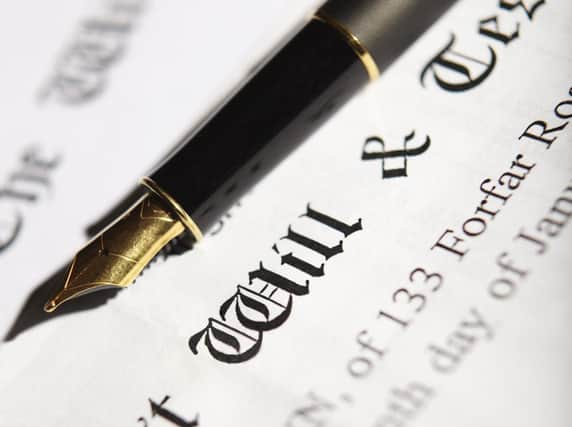Wiganers urged to write a will as £27m goes unclaimed across North West


Hundreds of thousands of pounds are going unclaimed because people haven’t written a will.
In the North West alone, there are 186 estates unclaimed, worth a whopping £27,900,000.
Advertisement
Hide AdAdvertisement
Hide AdAcross England and Wales there are 8,001 unclaimed estates estimated to be worth around £1.2 billion, with London contributing 30.7 per cent of the total unclaimed figure.
When somebody with no written will, or any known family, their estate is then passed over to the Crown under the term ‘bona vacantia.’
A person’s estate is usually made up of money, property, or personal effects.
To be eligible to make a claim on an estate, certain criteria must be met.
Advertisement
Hide AdAdvertisement
Hide AdIf the person has left no will, their spouse or children have the first claim on their estate.
In the event of no spouse or children, any person who is directly descended from a grandparent of the deceased has the right to make a claim for a share of the estate.
This includes siblings, parents, aunts, uncles and cousins. Claim seekers who are related to the person via marriage are not entitled to claim for the estate, for example a mother-in-law or brother-in-law.
When it comes to adopted relatives, they will have the same rights and stake to a claim of an estate as blood relatives, and vice versa – only the adoptive family can make a claim on the estate if the person who died was adopted.
Advertisement
Hide AdAdvertisement
Hide AdBut it is good to note that adopted people have no rights to the estate of any of their original birth family.
However, if some are not a direct relative there may still be a way to put in a claim for the estate – for example, if they lived with or cared for the deceased.
To prove a claim on an estate, a claimant will have to show a family tree highlighting the relationship with the deceased and two pieces of identification. Birth, marriage or death certificates may also be required.
The time limit to make a claim on an unclaimed estate is 30 years.
Advertisement
Hide AdAdvertisement
Hide AdIf it is still unclaimed after this time frame, the estate then becomes permanent property of the Crown and the Treasury.
Tom Howcroft, Partner at Forbes Solicitors, said: “Some people might not know that they are sitting on a goldmine.
“These 8,000 people will have relatives, somewhere, they just need to be found.
“Wherever you are in the country, there are millions of pounds sitting unclaimed. A lot of potential beneficiaries don’t claim because they think it would be a difficult task, but we try and make the process as seamless as we possibly can.”